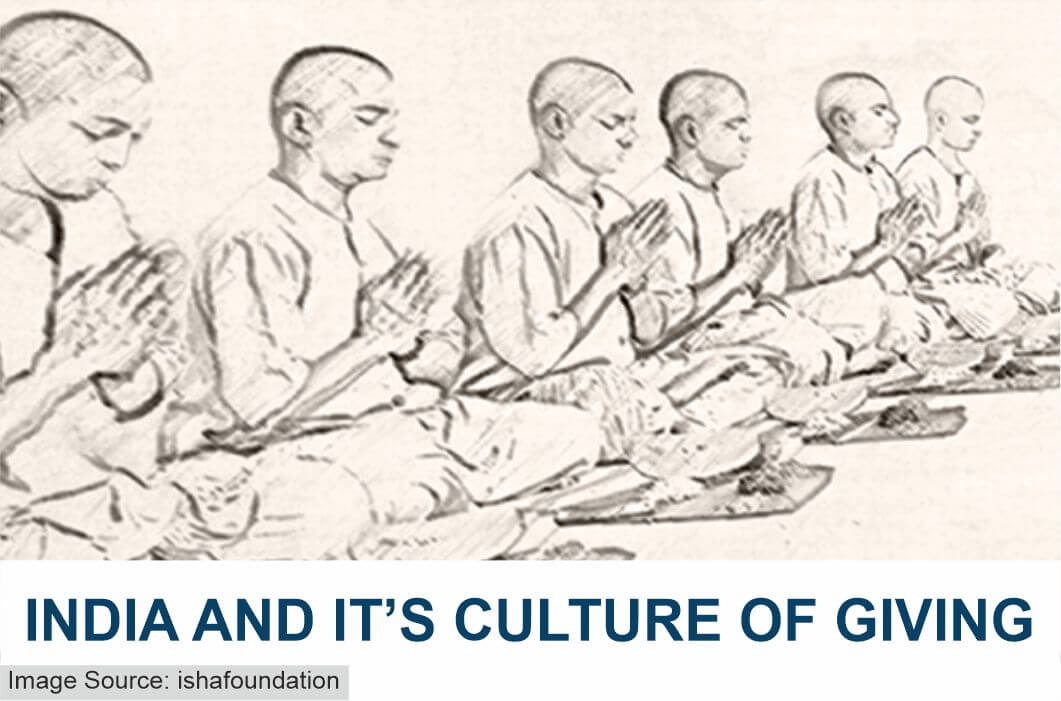Many traditions in Indian culture are shaped around one idea, that of philanthropy. The concept of giving is not new in India, the practice is ingrained in the psyche of almost all the citizens of this ancient land. The idea is that of helping others, be it through providing hospitality, wealth, resources, food, or anything that might be helpful to those in need.
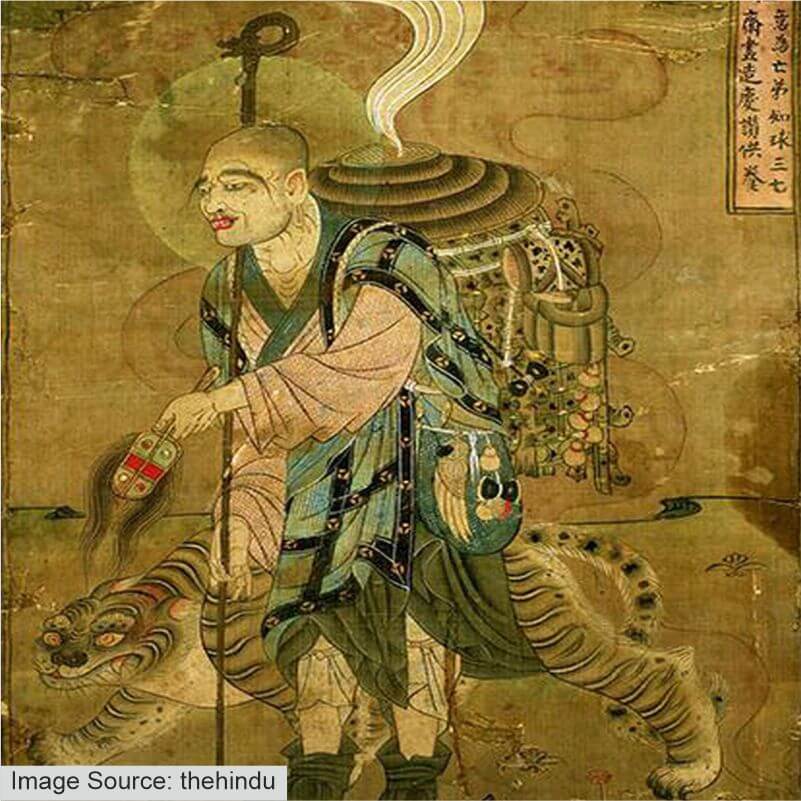
The culture is so deep-rooted in the country that when the Chinese Scholar, Hiuen-Tsiang, visited India in the seventh century, he saw that the people, however wealthy or underprivileged, were all driven by this one integral idea.
From the Kings who shared their wealth with the citizens of the country to the different sects of people who provided rations and food to the traveling monks and pandits.
This practice of offering food to others is held by so many people in a vast majority that many believe it is one's religious duty.
It is a popular belief in the culture that, 'It is one's dharma to provide food and water to any guest.'
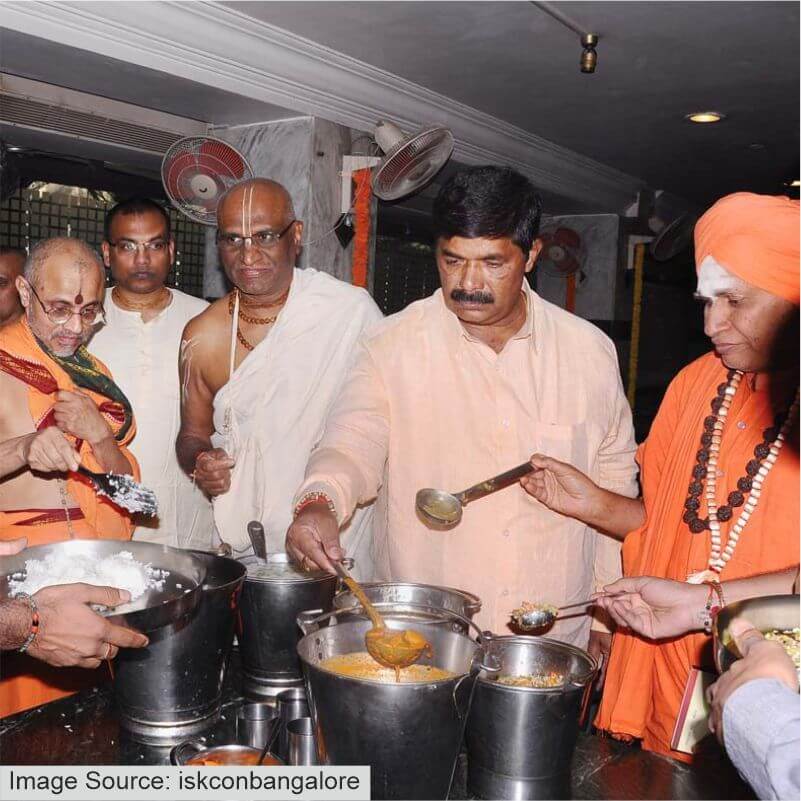
This idea is held so religiously in the minds of Indians because of the ancient stories and scriptures. Many occurrences and events in the Vedas show God's annoyance with those who are hostile to others.
According to the Vedas, there are three types of giving:
-
Giving to those in need without any expectation of reward or appreciation.
For the believers, one should never have a reason to help. Because to help with the expectation that one will get more in return is swaying away from the idea of helping and, therefore, selfish.
-
Hesitance in the offering.
The belief tells that one should never hesitate while giving because ultimately, the act will please the Gods and benefit one's dharma.
-
Giving without an assertion of dominance.
One should always remember to be kind and consider the recipient's feelings. One shouldn't act superior to the recipient while offering help because that leads to embarrassment to the recipient.
When we see these attributes, it becomes clear that India is a country that has a culture of giving as one of its most important traits.
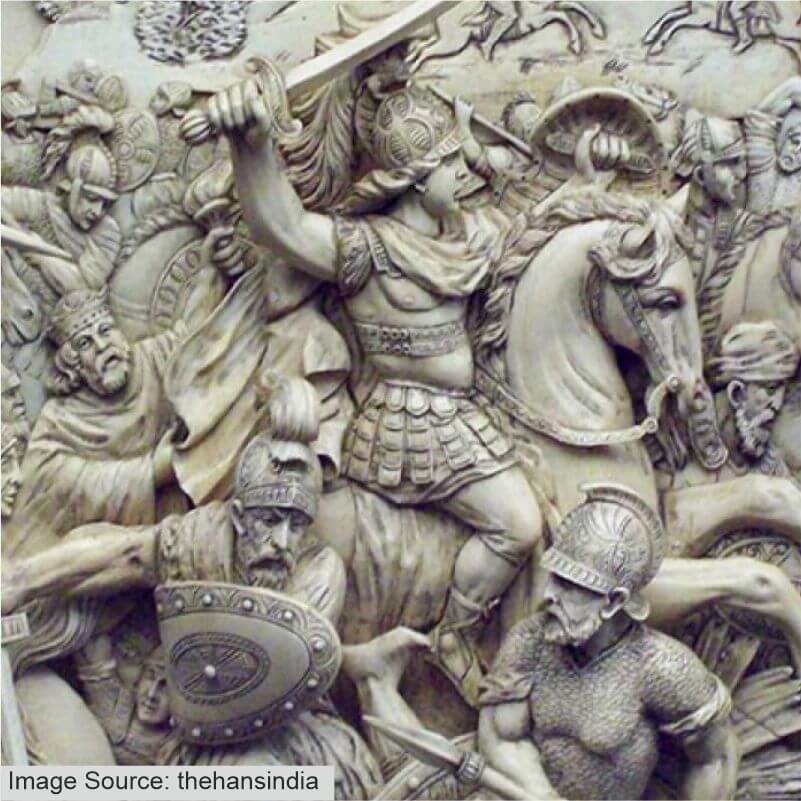
And this tradition isn't just a thing of the past; there have been various adaptations of this culture in modern society. It becomes clear that despite all the tumultuous times India has gone through, the culture of giving has still survived in the country.
Among various followers of these traditions, there are a lot of NGOs that uphold this culture. These NGOs provide aid and hospitality to the people in need through several initiatives year round, so any individual who needs help or is in trouble can contact and get help.
One such foundation is Child Help Foundation which holds this idea of giving in high regard.
The foundation believes that by carrying this idea forward, one can help people in need and show that one simple act of helping someone can hold a significant consequence.

Child Help Foundation believes that there is nothing more substantial than kindness, which is why the organization has implemented various initiatives that promote the idea of giving, either by providing food/rations, medical aid, or educational needs to people in different parts of the country.
The organization's core value is to fulfill the sustainable development goals put forward by the United Nations, with the main priority being children's well-being. One of the programs initiated by Child Help Foundation that is an excellent example of the culture of giving is their zero hunger program, in which they provide fresh warm meals every day to underprivileged children so that no child goes to bed on an empty stomach.
Seeing these kids smile fills us with enthusiasm and assures us that generosity never goes futile. But how does modern India adhere to the ancient values of philanthropy?
IDEA OF GIVING IN MODERN INDIA
People nowadays are adamant about following traditions that existed among their ancestors. Does that bring happiness? We don't know. It can be assumed that carrying these traditions forward makes people feel fulfillment towards their community and a part of nature since that is what nature provides without asking for anything in return.
Another reason, as mentioned above, is adhering to the scriptures that mentioned this culture of giving as one of the crucial practices. In modern India, with the democratization of media and different cultures, Indians worldwide feel that their culture, although one of the oldest, is being left behind. And for this reason, many promote practicing what their scriptures taught them to do.
The millennium-old Bhagwad-Gita, a 700-verse-long scripture and a part of the Mahabharata, taught that one who enjoys an abundance of their wealth without sharing with others is indeed a thief.
Many people today continue with these traditions even though modern India bears little resemblance to India described in these ancient texts.
India is among many countries that follow this tradition based on ancient beliefs. In many parts of the country, community service and living one's life for the sake of their community still plays a significant factor for many people.
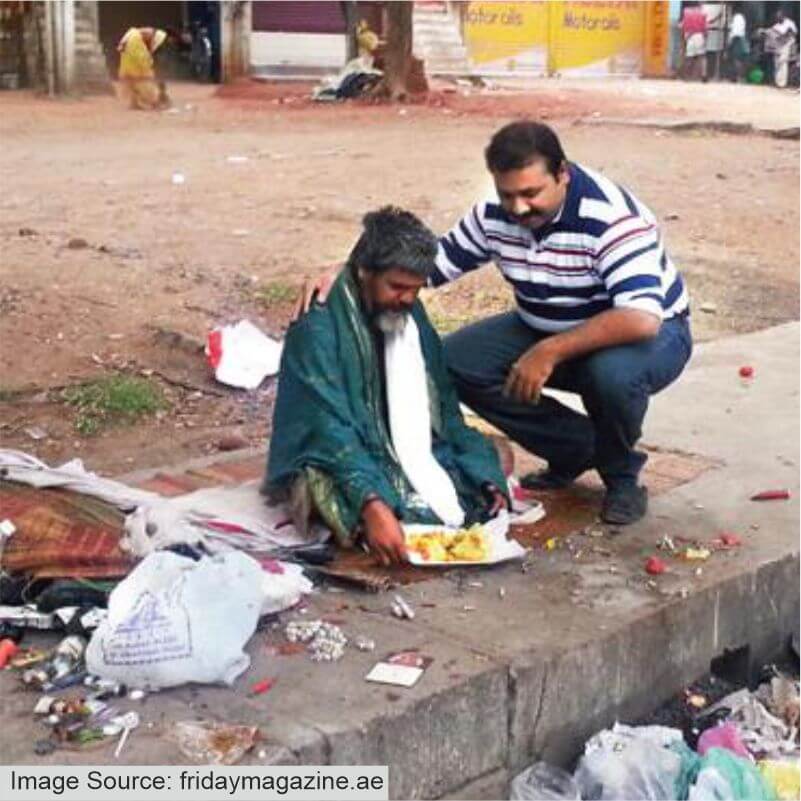
But that's not what it should be conducive to; everyone with the means and ability should offer and help those in need. If life has accrued these benefits to some of us, then it becomes our duty to care for those for whom life didn't turn out that way.
We must show the world our gratitude with the belief that generosity reciprocates.
References:https://www.alliancemagazine.org/feature/traditions-of-giving-in-hinduism/
